– Additional reporting and photos by Cristina Espinosa and David Ajtun
April is National Arab American Heritage Month, a time to recognize and celebrate the cultures, histories and contributions of nearly 4 million Arab Americans. With roots in 22 Middle Eastern and North African (MENA) countries — including Egypt, Lebanon, Syria, Morocco, Saudi Arabia and Sudan — Arab Americans represent a wide range of identities, languages and traditions. At CSUN, Arab American students are making their mark in classrooms, student organizations and beyond. CSUN Newsroom spoke with Matadors from diverse backgrounds who reflected on how their heritage has shaped their college experience, the values they carry with them and how they are honoring their culture while forging their own path.
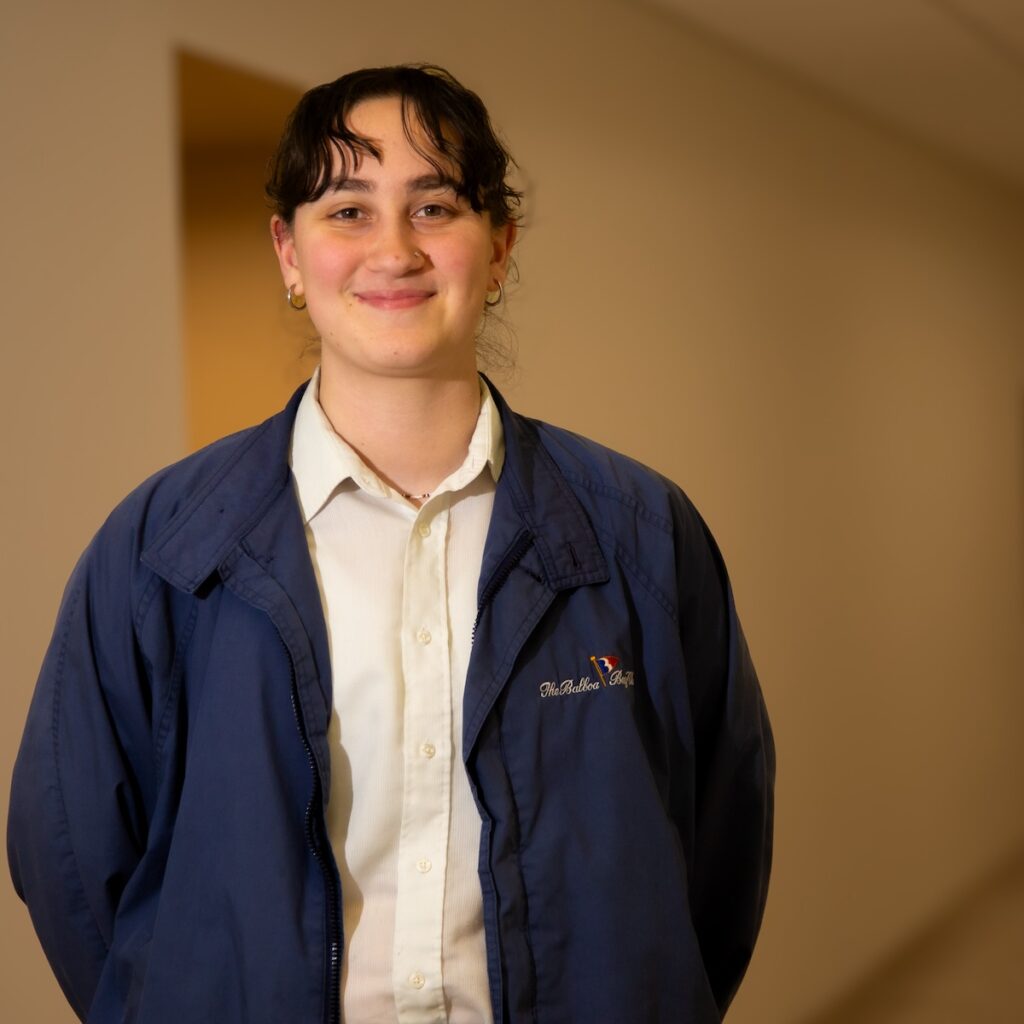
Katie Karroum, 22. “I am Syrian American.”
A senior communication studies major and CSUN’s Associated Students President, Karroum said her cultural background has had a profound influence on her college experience — particularly as a first-generation student. “Arab Americans [may] relate to the fact that our families have very high expectations for their children to succeed,” she said. “It is a lot of pressure, and a lot of the pressure also turns into feeling like you don’t have a say in the degree you want to pursue and the career you want to end up landing in.”
One value she holds close is the tradition of hospitality, which she believes is central to Arab culture and something she feels more people should embrace. “Be the one to offer to pick up the bill first, invite them into your home, making sure that they have food and something to drink in front of them,” she shared. “It brings that morality of being a human back to us… you’re a human and I’m a human and I want to make sure that you’re nourished and cared for.”
Karroum said she hopes to make an impact on her community through open dialogue — particularly focusing on the struggles and intersectional identities that she feels can go unspoken in some Arab American communities. “I think that’s the biggest thing that we don’t see in the Arab community is people speaking up,” she said. “Arab Americans… are really used to this culture of not talking to other people about [their] struggles because you don’t want other people to know that you’re struggling.”
By embracing open conversations, she believes her generation can foster more empathy and understanding. “It’s important to acknowledge that there needs to be learning and reflection,” she told CSUN Newsroom.
When asked how she is working on keeping her culture alive, she said standing together in solidarity — especially in the face of discrimination and misrepresentation — is where she starts. “There’s a lot of anti-Arab rhetoric that goes around, and it’s super common and super normalized,” she shared. “A lot of what we see in the media and what we see in policy and legislation is inherently anti-Arab and coming together and finding community is [vital].”
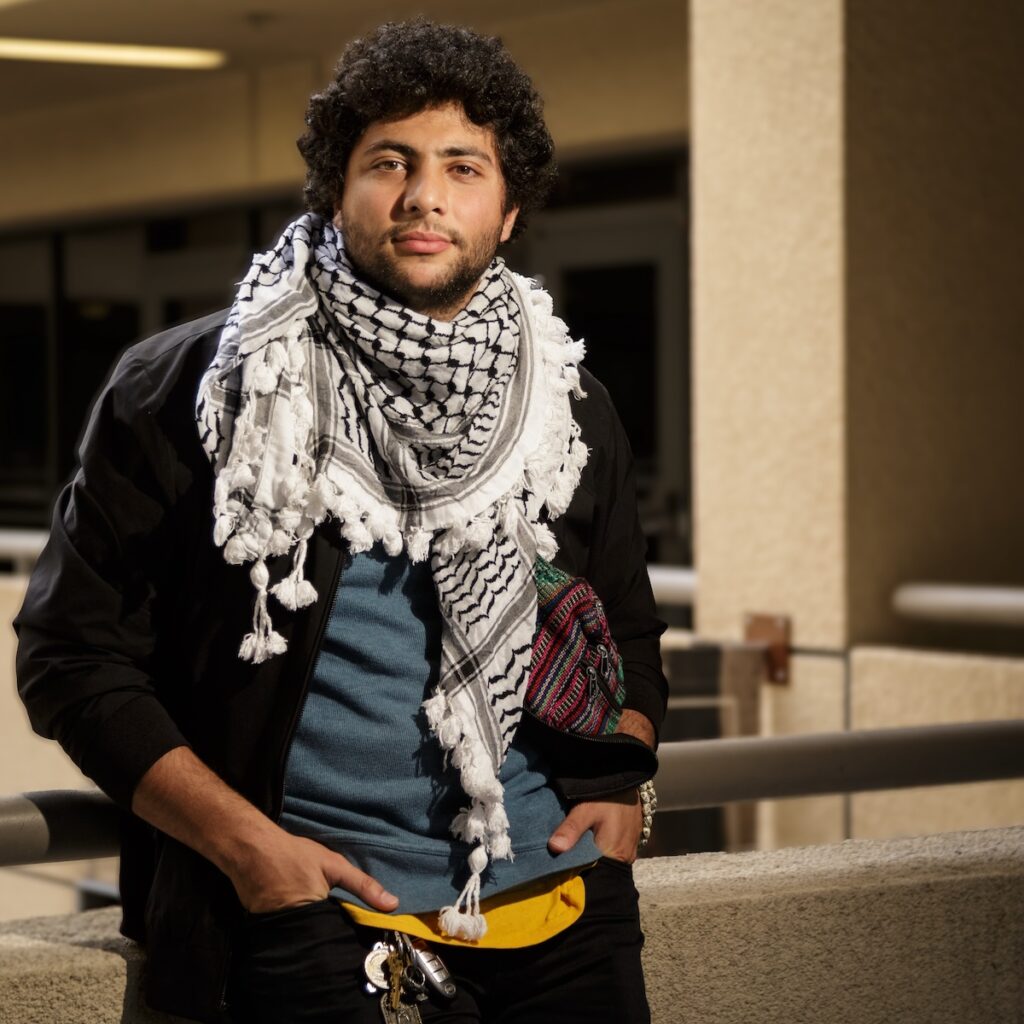
Dawoud Mishal, 22. “I am Palestinian.”
A senior film major with a focus in producing, Mishal said his cultural identity has been a driving force in his college experience and creative work at CSUN. Born in the U.S. and raised in Jordan, he shared that although he hasn’t visited Palestine, it remains the culture he connects with most — a connection that has shaped his advocacy, community building and storytelling on campus.
“I always try to support them, and motivate them, and encourage them, because I know these are very tough times,” he said. “A lot of people are even ashamed or reluctant to even say they are Palestinian… I try my best to motivate them and let them know that they have a community.”
That sense of connection has extended into his work as a filmmaker. His senior thesis project, “The Anniversary,” tells the story of a Palestinian family living in post-9/11 Detroit and navigating racism.
“CSUN has given me the opportunity to express being Palestinian,” he said. “I’ve been working on anything related to Palestine since then.”
A founder of the Express Film Festival — an effort to unite student filmmakers from CSUN, UCLA and USC — Mishal said he hopes to uplift underrepresented voices and build bridges through collaboration with his fellow storytellers and creatives.
When it comes to honoring tradition, he holds close a phrase from his upbringing that reminds him to stay grounded. “Alhamdulillah… it means thanks or gratitude to God,” he explained. “I try to say it after every encounter… even if they don’t like me, or even if they don’t align with me. I try to say alhamdulillah. God bless them.”
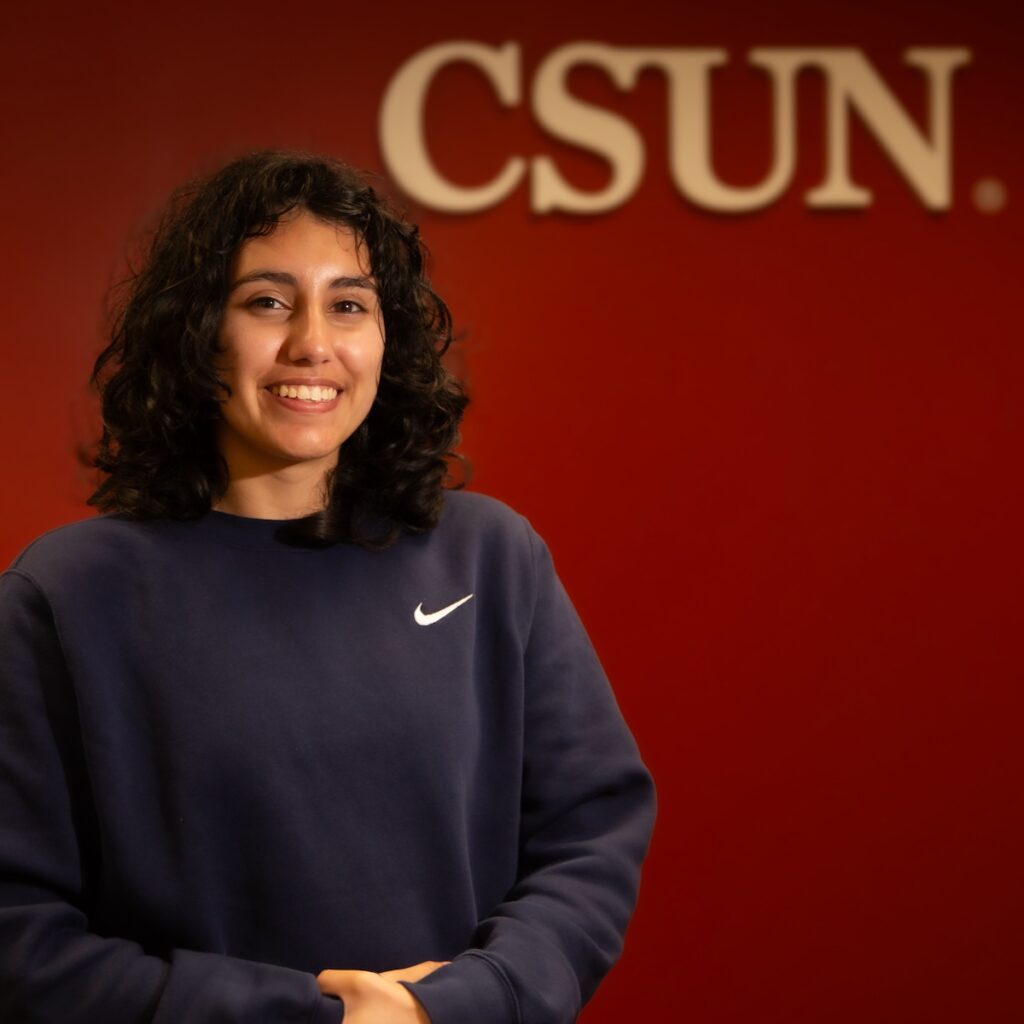
Angelica Alhakim, 21. “I am Yemeni American.”
A senior psychology major, Alhakim said her background has shaped the way she approaches challenges and how she stays focused on her goals. “In my culture, giving up is like not really an option,” she said. “Because my future is important and that’s what’s going to shape who I become in the future and who I’ll be.”
She shared that deep sense of purpose is grounded in the values her family has instilled in her — especially the importance of staying connected to loved ones. “Always put your family first,” she said. “They’re always there to support me and… I’m there to support them.”
At CSUN, she hopes to create a stronger sense of connection and belonging for other Yemeni students. “[I would like to] bring more Yemeni girls like me together… like a safe space… a bonding experience, to get to know each other,” she said when asked about making an impact on her community.
Alhakim explained she is inspired by how her generation is keeping cultural traditions alive while adding their own voices. During the holy month of Ramadan, for example, she’s seen a growing number of students observing and sharing in the experience. “That month is all about having good intentions,” she said. “I’m happy that I see a lot [more] Arabs participating.”
Through identity, resilience and community, these Matadors are making their mark — using creativity, connection and the power of their voices to inspire change. They are just a few of the many CSUN students embracing their heritage and shaping a brighter future.


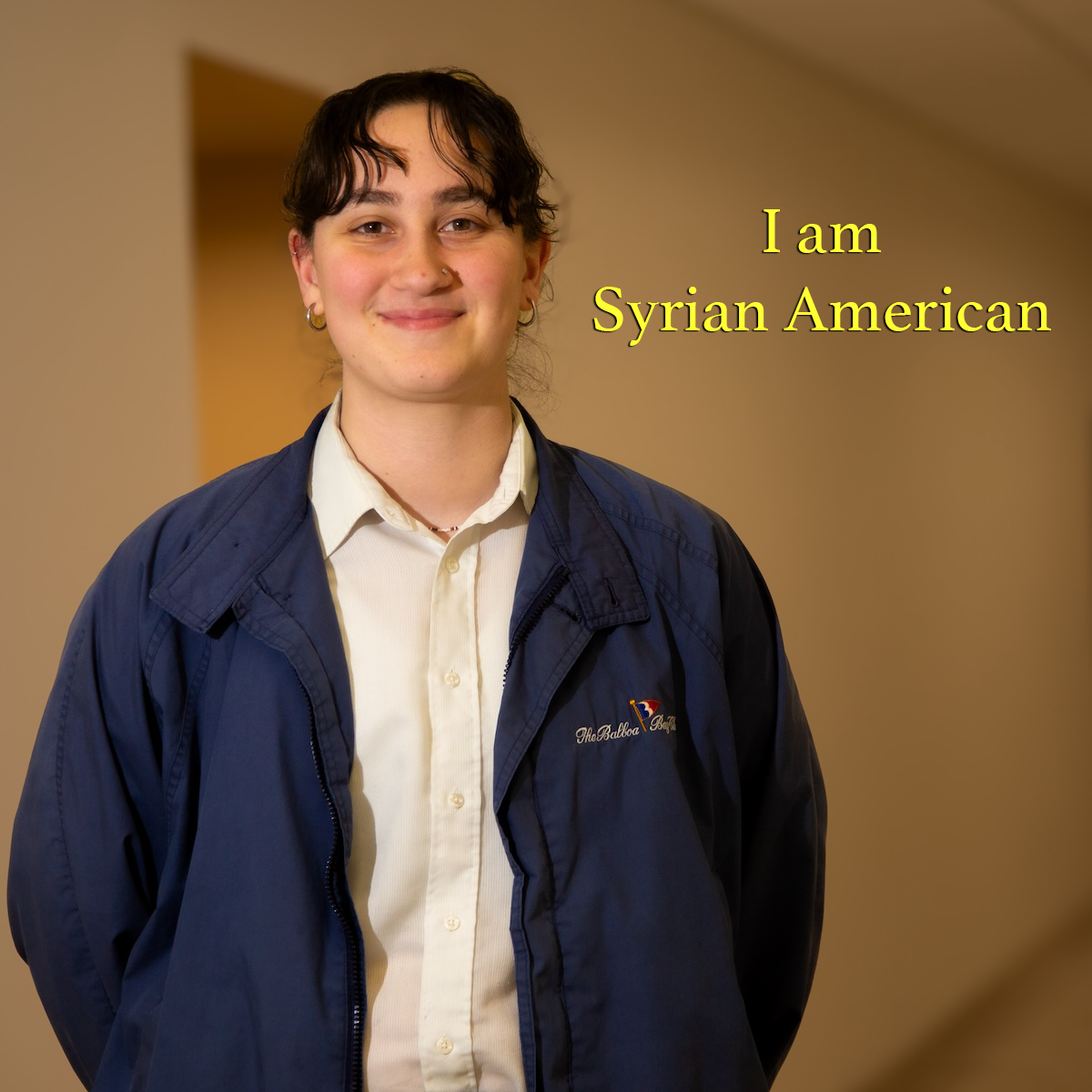
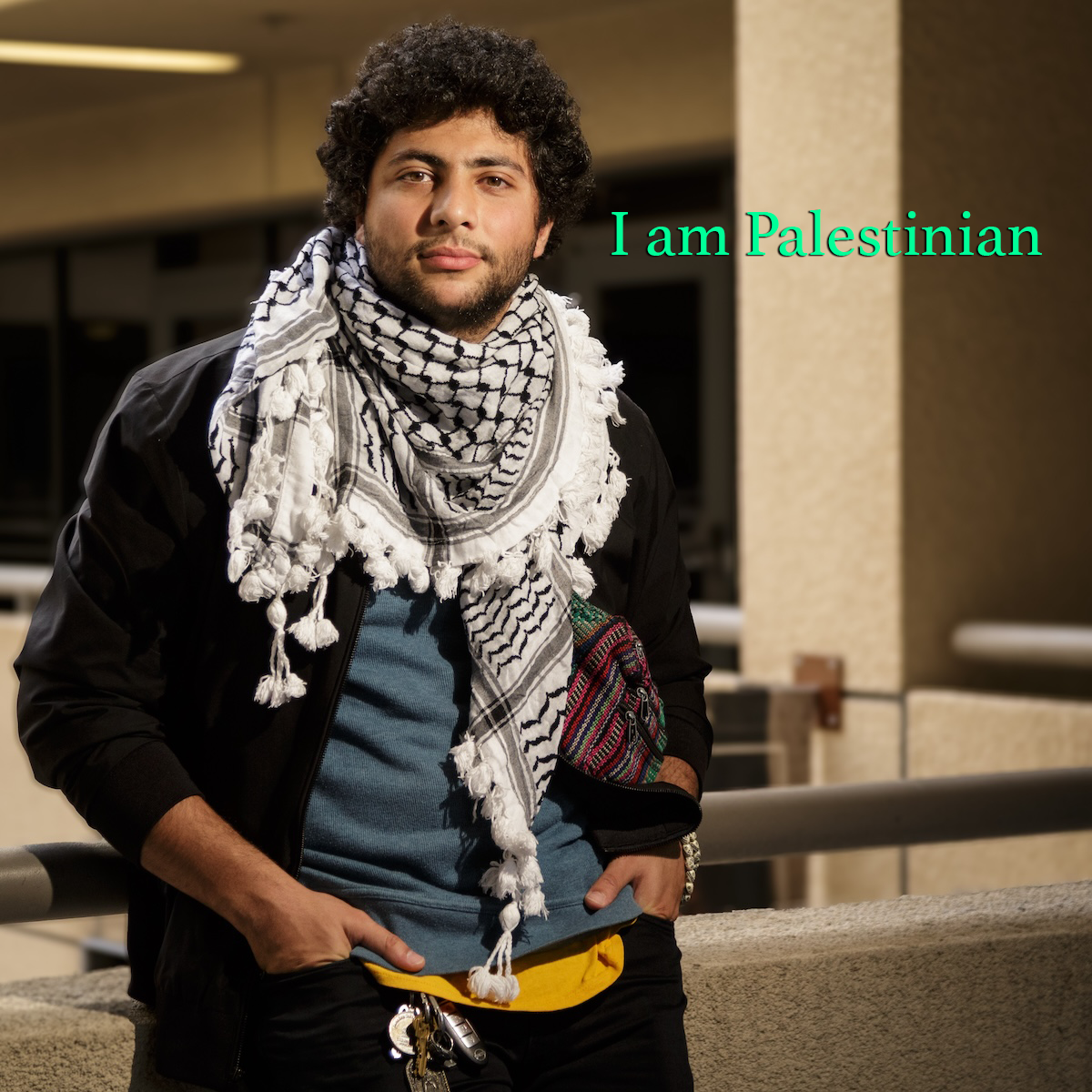

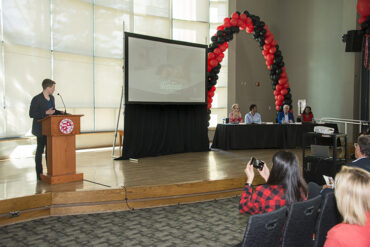
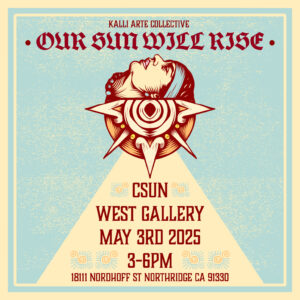
Comments are closed.